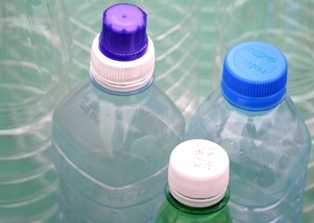Plastic Travels A Long Way To Be Recycled
We all put our plastic bottles in the recycling bin don’t we?
And we know our council empties our bin into a truck that drives away down the road, and then our bottles get recycled. Good, job done. But where exactly do the bottles go once they’ve been picked up?
The majority are exported to China.
Britain exports 60% of the plastic it generates, and the vast majority of this is sent to China.
You may have heard worrying stories of our waste being dumped in other countries with the implication we are offloading our waste onto someone else because we want to keep our green and pleasant land clean, but in this case of washed post-consumer plastics the reason for exportation is simple economics.
China and countries like it have a larger manufacturing industry than the UK. Plastic is a valued raw material, for example, the plastic recycled from milk bottles (HDPE plastic) can be turned into crates or packaging film, and that from fizzy drinks bottles (PET plastic) can be spun into textiles to create clothes made from fleece. There is money to be made from sending our waste on empty containers back to China to supply materials that will eventually be made into goods that will come back to us on the same containers.
At first glance this seems a neat solution to keeping plastics from landfill, but there are some aspects to this cycle that are worth thinking about.
Firstly, it relies on a continued and uninterrupted demand for plastic waste from China. Recently this situation has been changing. As China’s own internal recycling systems improve it naturally needs to import fewer raw materials. China has set a target of recycling domestic plastic of 70% in 2015. Perhaps an ambitiously high goal, but certainly one to concern exporters.
Don’t forget we aren’t the only country taking part in this industry. We are ‘competing’ with other countries, notably the US, Japan and Germany. Britain accounts for only 10% of China’s plastic waste imports. With a large amount of waste coming its way China has the freedom to choose whose plastic to accept. Quality becomes important. Apparently they consider our plastic waste of a good standard, but not the best. In the last few months the Chinese have banned the import of unwashed post-consumer plastic scrap, and Malaysia has stopped importing all solid plastic waste from the EU. The market for our waste is reducing. Does this imply we are going to have to find new solutions to our problem?
This is an issue about taking responsibility for the waste we generate.
Those involved in Britain’s recycling industry, from those who collect the waste, and the processers, through to plastics manufacturers and WRAP (the Government’s Waste & Resources Action Programme) are urging the government to invest in more recycling facilities. There is money to be made by dealing with plastic waste here.
Wouldn’t it be good if the driver for a more sustainable system wasn’t simply economics, but an ethical concern for the environment and its inhabitants as well?
Janet



Comments
Post a Comment